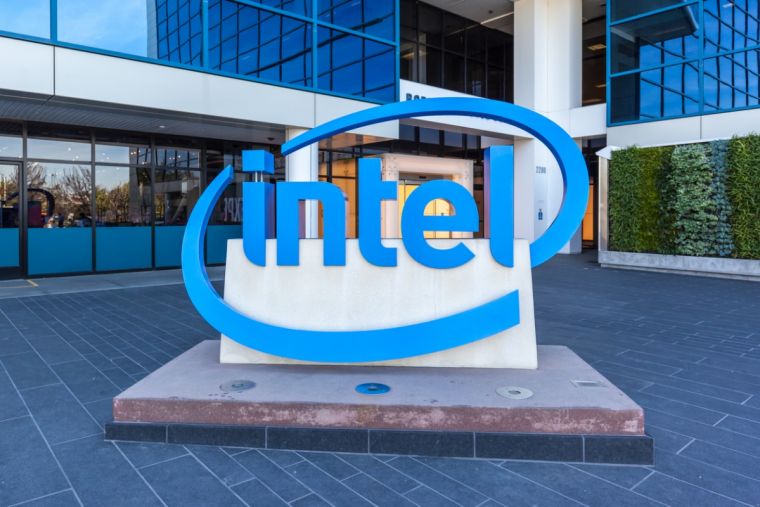Intel wins 2023's most faith-friendly company as Fortune 500 warms to religious diversity

On January 3, ESPN host Dan Orlovsky stunned viewers when he broke into prayer for Damar Hamlin, the Buffalo Bills player who went into cardiac arrest the night before, on a live broadcast.
"God, we come to you in these moments that we don't understand, that are hard because we believe that you're God and coming to you and praying to you has impact. We're sad. We're angry. And we want answers, but some things are unanswerable," he said. "We just want to pray, truly come to you and pray for strength for Damar, for healing for Damar, for comfort for Damar."
This prayer is emblematic of the kind of religious freedom promoted by the Religious Freedom and Business Foundation, said President Brian Grim. The organization released its 2023 benchmark assessment of corporate America's religious diversity efforts Monday morning
The annual report, he said, celebrates companies that allow employees to bring their whole selves to work and respond authentically to crisis.
"The basic idea of religious freedom is that you're free to have a faith, change your faith or have no faith at all," said Grim, who added that belief in the workplace should be treated as an asset, not a threat.
This year, Intel was ranked as the most faith-friendly Fortune 500 company, with American Airlines and Equinix trailing close behind, according to the 2023 Corporate Religious Equity, Diversity and Inclusion Index. Intel earned a perfect score on the index, which assessed "25 top faith-friendly companies" via an opt-in survey. The survey evaluates companies in 10 categories, including their religious accommodations, spiritual care offerings and belief-based employee resource groups.
For the first time since the REDI Index launched four years ago, companies that didn't take the survey were ranked separately on their religious diversity efforts based on publicly available information. This separate ranking, called the REDI Monitor, found that 219 companies (44%) refer to religion on the diversity page of their website, up from 202 last year, and 43 companies (8.6%) publicly report having faith-based employee resource groups, up from 37 last year.
Among the top 25 companies assessed in the REDI Index, 96% clearly address religion in their diversity training and have clear procedures for reporting religious discrimination. Eighty percent provide chaplains or other forms of spiritual care, and 72% match employee donations to religious charities. This is the first year that three European-based companies opted in to the REDI Index.
According to Grim, one of the attributes that allowed Intel to snag the top spot was its interfaith coalition of employee resource groups, which brings together employees from a range of religious and spiritual perspectives for mutual education. Recently, the head of Intel's Bahá'í employee resource group was tapped to head the interfaith coalition. "It was just such a beautiful example of majority faiths and a very small minority faith working together for the greater good of a company. Some of those dynamics are very impressive. What a model for society that even your smallest religious group can do something that makes everyone better," said Grim.
The REDI Index report also highlighted other standout initiatives, including Tyson Food's 100 chaplains, the Equinix Foundation's 24/7 spiritual and emotional support services and Salesforce's "mindfulness zones" for prayer and meditation.
While some companies like Intel have been promoting religious diversity for decades — Intel launched its faith-based employee resources groups in 1996 — the topic of religious inclusion has long been off-limits in the corporate world. This reality is highlighted by the REDI Monitor, which lists over 200 companies with no publicly available information about religious diversity efforts. But in the years since the Religious Freedom and Business Foundation has been offering its benchmark assessment, the taboo on religion in the workplace has begun to wane.
"The companies themselves are sort of socializing this idea among their peers," Grim observed. "Four years ago, it was like, 'Whoa, no, we can't talk about that. We do that, but we've never talked about that outside our walls.'"
This week, the Religious Freedom and Business Foundation is hosting its Dare to Overcome Conference on Faith@Work in Washington, D.C. What began as a conference with five participating companies has transformed into a three-day event with leaders from roughly 25 Fortune 500 companies in attendance. Representatives from Uber and Toyota, who have not yet opted in to the REDI Index, will also attend the conference, which will feature plenaries and breakout sessions hosted by leaders from Dell, American Airlines, Coca-Cola, Ford Motor Company, Google and the State Department.
This year, the conference theme is "love heals," a message Grim hopes highlights the connection between spiritual and physical health.
"When people think of faith at work, it's not merely so someone can bring their whole soul to work, and have their identity there, but that it provides additional resources for resiliency and stress," said Grim. "When you open the door to faith, it brings in resources people sorely need."
© Religion News Service











